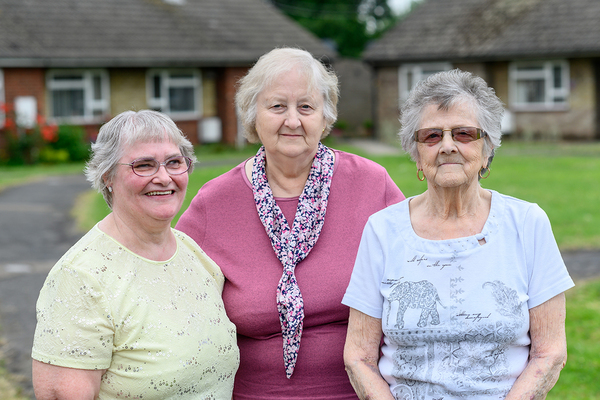You are viewing 1 of your 1 free articles

Providing the homes needed for older people is a daunting but achievable task
A recent parliamentary inquiry revealed the scale of the housing crisis facing older people. Tackling it is possible, but only if the will is there, writes Dame Clare Tickell
There has been lots of discussion over recent years about how difficult it is for younger people to buy their own homes, the increasing reliance on renting and the emergence of Generation Rent.
What has not received as much attention is the other side of the coin: there are more and more people living for longer who have never been owner occupiers and are dependent on rented housing to provide them with a good, safe and secure home.
This was the focus for the All-Party Parliamentary Group (APPG) on Rental Housing for an Ageing Population. The group’s report, out this month, sets out to understand what renting in later life looks like today, and how the housing needs of older people might or might not be met by the private rented sector in the years to come.
Unsurprisingly, the inquiry found there is not enough rented housing to meet the future need for older people. It estimates that there is a need for over a million suitable new homes by 2050. So far, demographic changes have not been taken into account when housebuilding priorities have been set, leaving us facing a serious crisis in accessible homes.
It is urgent that we begin to address this issue now. It’s not only crucial that we build enough houses to meet demand, but that those houses are safe and suitable for people of all ages.
The inquiry also found that the most significant challenge facing older tenants is affordability and concluded that rents in the private rented sector quickly become unaffordable for older people once they are not in work and are reliant on fixed incomes.
We need a strong commitment from government to providing more housing in the social rented sector where rents are at reasonable levels, where quality and design is more likely to be accessible for people as they age, and there is greater security of tenure and therefore peace of mind.
“It’s not only crucial that we build enough houses to meet demand, but that those houses are safe and suitable for people of all ages”
The amount of new housing for older people who have low support needs also needs a boost to avoid costly and unnecessary moves from general needs housing to care homes when purpose-built, accessible housing would have been far better – enabling people to retain independence and engagement in their neighbourhoods and communities for far longer.
The work we’ve done at the Centre for Ageing Better has made clear the huge impact that bad housing has on the lives of older people, so we welcome the findings and recommendations made in this report.
It’s crucial that government take these recommendations seriously and begin to take a much more forward-looking approach to housing. But we also know that there are immediate steps that can be taken to improve the lives of people in later life whose housing is unsafe or unsuitable.
Our research shows that fitting simple aids and adaptations – from grab rails to wet rooms – can make a huge difference in keeping people safe, healthy and independent in later life, especially when combined with maintenance and repairs.
We need much more support available for people to put these in and, crucially, for this support to be available to people in short-term lets.
The government could also do much more to support and encourage landlords to make these adaptations for their older tenants.
The inquiry also found that not only are many rented homes unaffordable for older people, they are often hazardous or in disrepair. Evidence shows that a growing number of older people are living in homes which do not comply with the Decent Homes Standard.
The poor quality of some housing in the private rented sector can have a significant impact on overall quality of life and health of older people, exacerbated by the fact that it is far harder to get private landlords to pay for the kinds of adaptations that can make a home safe for people in later life or with mobility needs.
“Fitting simple aids and adaptations – from grab rails to wet rooms – can make a huge difference in keeping people safe, healthy and independent in later life”
While the Decent Homes Standard does not extend to the private rented sector, so it is difficult to be precise about the size of the problem, data from the English Housing Survey shows that there is much to be done.
Our recently announced partnership with Care & Repair England aims to better understand the scale and the detail of the problem of non-decent homes and identify the most effective ways to tackle it.
The APPG report is a timely and important reminder of the importance of making sure that increased longevity is baked into housing policy.
To meet the target of 1.1 millon homes needed by 2050, 12,000 new, well-designed homes for rent will need to be built every year. A daunting but achievable task if the will is there.
And while it is realistic to acknowledge that well-designed, well-maintained and truly affordable housing is probably best provided at scale by social housing providers, this should not prevent policymakers and others engaging with the practical and simple steps that can be taken to improve the quality and accessibility of homes for older people, whatever the tenure type.
Dame Clare Tickell, associate director for housing, Centre for Ageing Better



